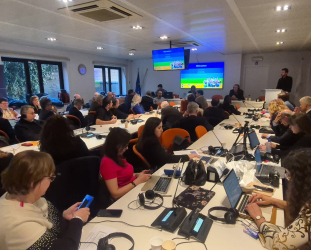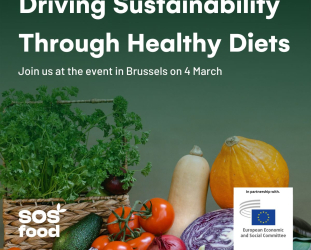Have your say!
In this page, you can access a range of links to the latest public consultations launched by the EU Commission. These consultations provide individuals with the opportunity to share their opinions and feedback on various EU policies and initiatives. The EU Commission encourages visitors to provide their input, as it is valued and taken into consideration as the EU develops and implements policies.
 List of high-risk organic and in-conversion products originating from third countries and their control rate
List of high-risk organic and in-conversion products originating from third countries and their control rate
This act concerns products from non-EU countries certified as organic that are considered to be high-risk due to their involvement in major, critical or repetitive cases of non-compliance that affect their integrity or their production.
It lists these high-risk products (organic and in-conversion) and provides details on their country of origin and the necessary amount of identity checks, physical checks and sampling percentages for consignments.
 Wine package: Implementation of the recommendations of the High-Level Group on wine policy
Wine package: Implementation of the recommendations of the High-Level Group on wine policy
Latest News

Cooperatives Driving Change: Key Events in Brussels, March 2025
As part of the International Year of Cooperatives, a series of impactful events took place in...

EU Deregulation of New GMOs: A Blow to Consumer Rights and Transparency
EU Member States voted in favour of deregulating new genetic techniques (NGTs) , exempting...

Join us at the EESC for the "Driving sustainability through healthy diets" Conference
Euro Coop is pleased to invite you to the "Driving sustainability through healthy...
Latest Stories

Coop Norway’s discount chain, Extra, receives prize for healthy marketing and celebrates with additional discount on fruit and vegs
Coop Norway’s discount chain, Extra, has been recognized for its commitment to healthier...

Coop Private Label Products Shine at the 2025 European Private Label Awards
The 2025 European Private Label Awards have celebrated the achievements in store brand...

Empowering Consumers for a Sustainable Future: An Interview with HISPACOOP for World Consumer Day
On the occasion of World Consumer Day, we highlight the essential role of consumer...

